Probiotics
Best Probiotic Supplements for Dogs | Boost Gut & Immune Health
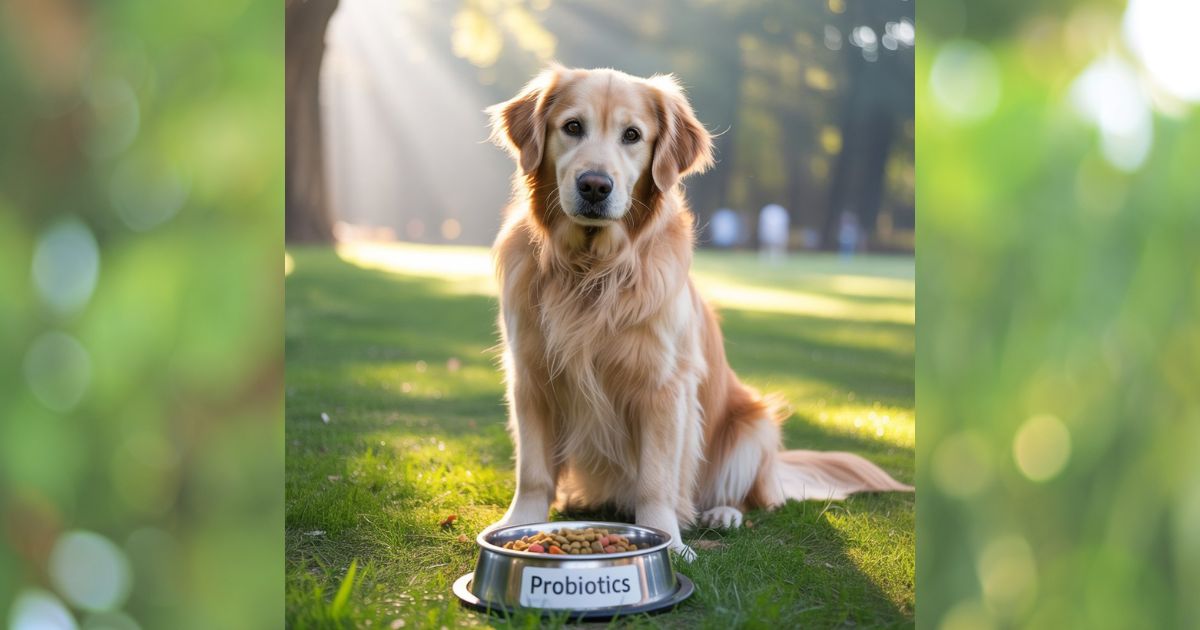
Introduction
Many dog owners frequently encounter the same vexing issue of their furry friend experiencing persistent digestive issues, lethargy, or seasonal infections. It is mostly the case that the underlying issue is not clear. In many instances, though, it concerns the pet’s digestive system.
Bad digestion can adversely affect one’s metabolism and body defenses, as well as mental well-being. The solution lies in the form of probiotic supplements for dogs. With the right probiotic supplements for dogs, an imbalance in digestion can be rectified, endoskeletal immunity bolstered, and the pet supported towards optimal holistic health.
Why Gut Health Is Important for Dogs
The gut of your dog also harbors trillions of both beneficial and harmful bacteria. When these microorganisms are in balance:
-
- Help in digestion.
- Enhance nutrient absorption.
- Defend against harmful microorganisms.
- Bolster strong immunity.
Nonetheless, when detrimental bacteria begin to take control, dysbiosis develops, leading to some of the following health issues:
-
- Persistent diarrhea or constipation.
- Excessive gas
- Low resistance to illness
- Dermatitis or allergic responses.
Good gut health should be achieved and preserved, as it is crucial to one’s health, psychological or physical.
Probiotic Supplements for Dogs—The Core Solution
Probiotic supplements for dogs are specifically designed with live active cultures for dogs. The specific probiotics have the following benefits once they have colonized the gut:
-
- Restoration of gut balance
- Enhanced digestion and nutrient assimilation
- Inhibition of pathogenic flora
- Strengthening of the immune response
Dog probiotics are tailored to a canine’s gut, unlike probiotics for humans, which ensures that their remedy is tailored to their needs.
Problems Your Dog May Need Probiotics

1. Chronic Diarrhea & Loose Stools
Diarrhea remains one of the most significant health challenges in dogs, especially in the most untreated cases, as it leads to rapid loss of critical nutrients and depletes their energy. Managing the frequency of probiotics, such as Bifidobacterium animalis, is effective in reinstating the frequency and consistency of the stools, respectively.
2. Gas & Bloating
Probiotics are effective at managing hypercholesterolemia and will aid your dog with the relief of foul and pungent bloating.
3. Low Immunity
70% of the immune system is said to be localized in the gut. Dog probiotics restore the balance and enhance the dog’s ability to fight illness.
4. Skin Allergies
Skin allergy is conditioned or aggravated by gut inflammation. Probiotics quiet inflammation for the better health of the dog’s coat and to relieve itching.
Types of Probiotic Supplements for Dogs
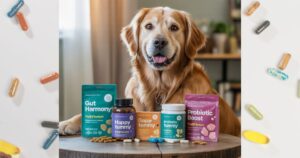
These dietary supplements are available in various formats, which are beneficial in their own ways:
-
- Powders—Can be dosed in any volume as they are easy to mix with food.
- Chews—These are easy to license for frequent use.
- Capsules—when there is a requirement for medical necessity or a strict precision dosage, capsules and liquids might serve as two of the most favored forms.
- Natural—Consideration of natural yogurt and kefir as well as fermented vegetables as foods is parental, but as a rule, such parodical considerations should be checked with the veterinarian first.
How to Choose the Best Probiotic for Your Dog

Always Check With Your Vet
Get professional advice tailored to your dog’s health condition.
Check For Several Strains
More bacterial strains of probiotics are likely to be more effective than fewer bacterial strains.
Look at the CFU count.
Look for products that have 1-5 billion CFU for each dose when treating dogs.
Avoid fillers and preservatives.
Avoid artificial flavors, colors, and preservatives that do not add any value.
Use of Probiotics for Best Results

- Use the dosage as prescribed and don’t deviate.
- Ensure they are taken every day for optimal results.
- Increase incrementally—the dosage to help the dog’s digestive functions acclimate.
- Check for changes—monitor changes in stool texture, energy levels, and itching reduction.
Vet Check and Other Precautions
While probiotics for dogs are generally safe, you should seek veterinary advice if your dog:
-
- Is suffering from extreme vomiting or diarrhea that is bloody
- Is on medication for a longer duration
- Has chronic illnesses like an immune disorder
- Shows symptoms associated with an allergy and more.
Conclusion–Healthier Gut, Healthier Dog

Maintaining a dog’s gut health is necessary for ensuring that all aspects of its general health and well-being are fine. Probiotic supplements for dogs aid in the elimination of digestive issues, improve skin health, and boost the immune system.”
Picking the right family of probiotics for dogs, like the recommended ones, ensures the best results. The right family with the right probiotic strains, vet-approved probiotic, and CFU counts ensures dogs’ better digestion, increased energy, and a happier and healthier life.

Probiotics
Boost Your Dog Gut Health Naturally: How Probiotics Work Wonders

Introduction

Your dog’s gut is more important than you think, particularly when it comes to maintaining their health, promoting smooth digestion, and maintaining energy levels. In the last few years, veterinary health authorities have recognized probiotics—live, health-promoting bacteria—as a natural treatment for many digestive and immune disorders in dogs. In this article, we explore probiotics’ role in naturally improving dog digestive health, the benefits offered, and methods for integrating probiotics into a dog’s daily routine.
Understanding Dog Gut Health
The gastrointestinal tract of dogs is inhabited by trillions of microorganisms, referred to as the dog gut microbiome, which in turn constitutes a small ecosystem. This ecosystem influences a dog’s metabolism, the functionality of the immune system, and also mental health.
Antibiotics, over-processed foods, and poor canine diets all heightened stress levels, which, in turn, disrupt this equilibrium, leading to:
-
-
Bloating and gas
-
Indigestion
-
Increased sickness
-
Fatigue and mood changes
-
It is important to regain balance within the dog’s gut – and this is where probiotics can help.
What Are Probiotics?

Probiotics are helpful bacteria that assist in the preservation of the dog’s gut health. Probiotics, which are helpful bacteria, assist in sustaining a balanced microbiome, and unlike other harmful bacteria that cause infections, probiotics are instrumental to dog gut infections.
You can find them in:
-
-
Yogurt (dog-safe, unsweetened)
-
Kefir (dog-safe, plain)
-
Sauerkraut (in moderation, no added salt/spices)
-
Kimchi (dog-safe, very limited)
-
Kombucha (dog-safe, unsweetened)
-
Dietary supplements for dogs
-
By consuming probiotics regularly, dogs support their gut in maintaining the “good” bacteria it needs to operate optimally.
How Probiotics Help to Naturally Restore Dog Gut Health

Probiotics improve dog gut health by restoring the balance of bacteria in the intestines. This is achieved in the following manner:
- Restoration of Dog Gut Microbiota
Factors such as illnesses, inadequate diets, and antibiotics can all harm the dog gut microbiota. Probiotics, on the other hand, can help restore beneficial gut flora.
- Enhancement of Nutrient Absorption
Probiotics assist in better absorption of some valuable vitamins and minerals, as well as other essential nutrients in dogs. - Relief of Digestive Distress
Probiotics promote the betterment of bowel and other digestive functions in addition to reducing bloating, gaseous distension, and constipation in dogs.
Medication and other harsh drugs do not need to be administered, as the dog’s natural processes are supported by probiotics.
Further Benefits Of Probiotics for Dogs

Besides advancing physiological well-being, probiotics also:
-
-
Promote the immune response by restraining the spread of disease-causing bacteria in dogs.
-
Diminish the swelling that is often seen with certain long-term canine health conditions.
-
Improve the psychological well-being of dogs by fortifying the gut-brain axis, which is in charge of influencing feelings and stress.
-
Major Natural Sources of Probiotics for Dogs

Probiotics can be consumed through food, thus rendering dietary supplements unnecessary in some cases.
Examples include:
-
-
Kombucha (unsweetened, dog-safe)
-
Kefir (plain, dog-safe)
-
Yogurt with active cultures (unsweetened, dog-safe)
-
Miso and tempeh (in moderation)
-
Pickled foods like kimchi and sauerkraut (dog-safe portions, no extra spices)
-
Make sure to add to your dog’s daily meals one food item rich in probiotics to receive optimal benefits for the gut microflora.
Daily Activities for the Improvement of Dog Gut Health

Probiotics work synergistically with:
-
-
Consuming fiber to nourish probiotics (dog-safe fiber sources).
-
Drinking enough water to enhance digestion.
-
Sleeping enough and handling stress to safeguard the dog’s gut and brain connection.
-
Selecting The Right Probiotic Supplement for Dogs
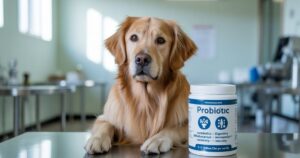
If you opt to give dietary supplements to your dog, you need to pay attention to the following:
-
-
Results from particular strains: Lactobacillus aids in digestion, and Bifidobacterium aids immunity in dogs.
-
Handfuls per serving: Not less than 1–10 billion CFU per serving.
-
Trustworthy companies with appropriate quality checks for canine probiotics.
-
Probiotics Do Not Blog – Dog Edition
Myth: Probiotics are identical throughout the different varieties available on the market.
Truth: Each probiotic contains different strains that serve different purposes in dogs.
Myth: You can’t give probiotics to your dog daily.
Truth: For most dogs, daily usage is not harmful.
Myth: Supplements work instantly.
Truth: Noticeable results in dogs can take weeks.
Final Thoughts and Actionable Insights
Understanding the fact that probiotics help to enhance dog gut health makes it easy to improve their overall feeling daily, which makes it possible to not depend on strong medications. Your dog’s gut health matters; it is related to their digestion, mood, and immunity.

Actionable Insights:
-
-
The daily diet should contain probiotic-enriched food (dog-safe).
-
Quality supplements should be considered if necessary.
-
Healthy habits combined with probiotics can provide enduring benefits.
-
The difference your dog can feel is remarkable, provided you care and start probiotics today.
-
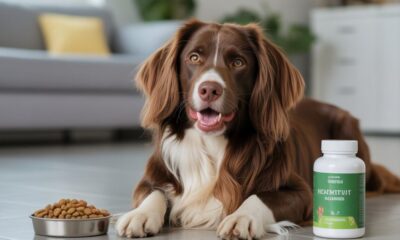
 Enzyme Support6 months ago
Enzyme Support6 months agoHow to Improve Your Dog Digestive Health with Enzyme Supplements | Complete Guide
-

 Probiotics5 months ago
Probiotics5 months agoVet-Recommended Probiotics for Cats with Digestive Issues | A Guide to Better Gut Health
-
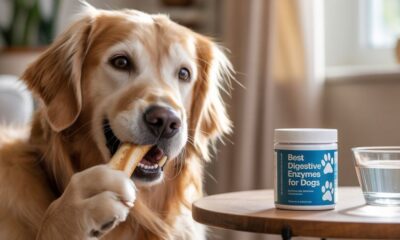
 Enzyme Support6 months ago
Enzyme Support6 months agoBest Digestive Enzymes for Dogs: Vet-Recommended for Digestion & Gut Health
-
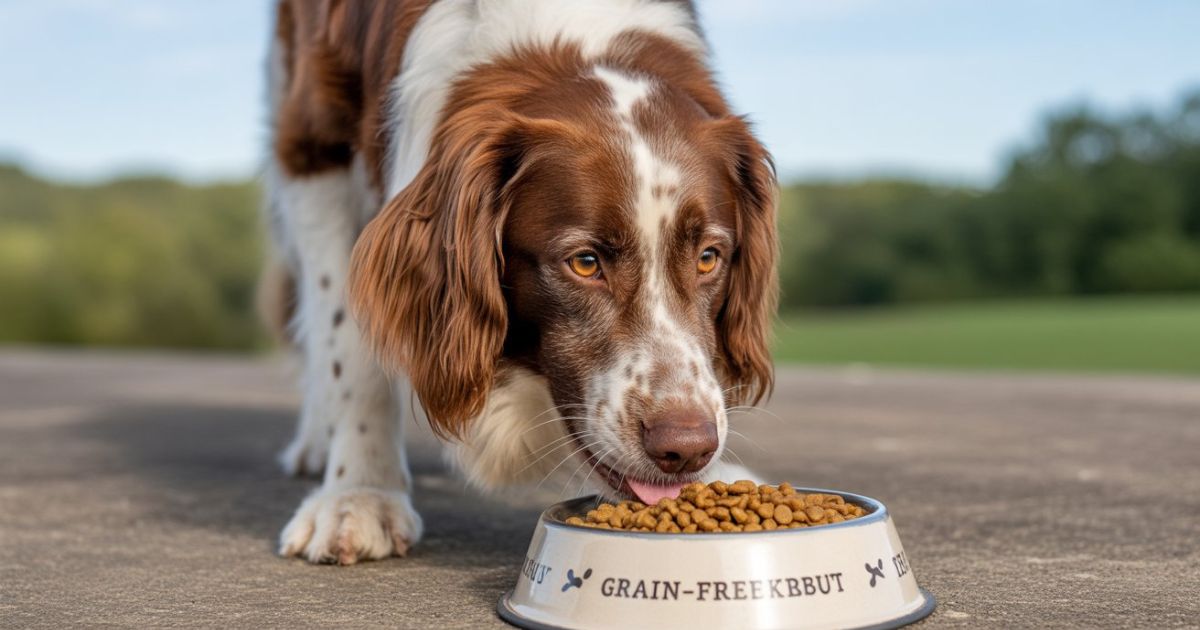
 Grain-Free vs Grain6 months ago
Grain-Free vs Grain6 months agoGrain-Free Diet for Allergic Dogs: Key Benefits Every Dog Owner Should Know
-
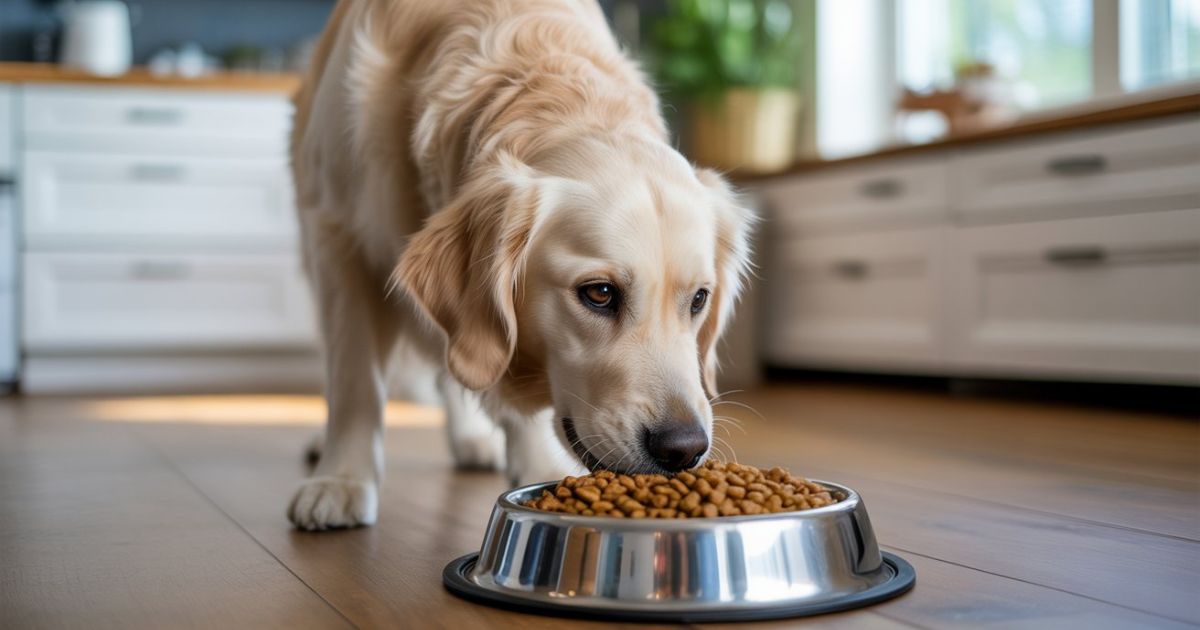
 Grain-Free vs Grain6 months ago
Grain-Free vs Grain6 months agoGrain-Free Dog Food-Good or Bad? The Essential Guide for Pet Owners
-

 Probiotics6 months ago
Probiotics6 months agoBoost Your Dog Gut Health Naturally: How Probiotics Work Wonders
-

 Cat Health5 months ago
Cat Health5 months agoBest Fish Oil Supplements for Cats — Vet Picks Made Easy with Omega-3 Benefits
-

 Bone Broth6 months ago
Bone Broth6 months agoBone Broth for Senior Dogs – Boost Joint Health and Mobility Naturally


